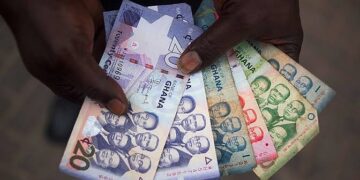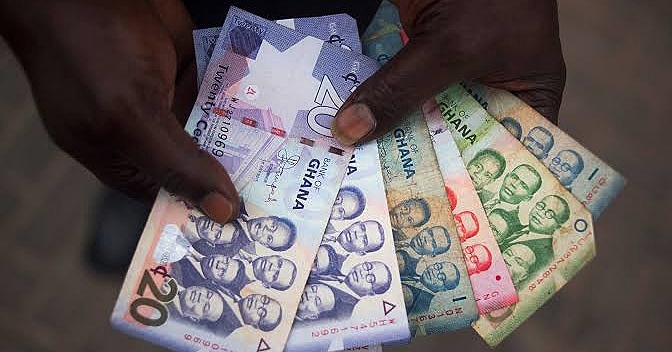By John Ikani
Ghana’s inflation rate has unexpectedly dropped for the first time in 20 months, largely thanks to a strengthening cedi.
According to Government Statistician Samuel Kobina Annim, annual inflation has slowed down from 54.1% in December to 53.6% in January.
The drop defied expectations, as a Bloomberg survey had predicted an average estimate of 54.3%.
While food-price growth has quickened from 59.7% to 61%, non-food inflation has seen a slowdown from 49.9% to 47.9%.
Annim suggested that the drop in consumer prices was due to non-food inflation, adding that “this partly suggests that that stability we saw in the exchange rate might have had some impact on the January inflation rate.”
The stabilization was brought about by a preliminary deal between the International Monetary Fund and Ghana for a $3 billion bailout last December, which briefly rallied the cedi.
Despite the recent drop in inflation, it remains far above the central bank’s target range of 10%, where it has lingered for 17 months.
While the decrease is a welcome development, it may not be enough to prevent the monetary policy committee from increasing interest rates on March 27th.
A 100-basis point hike at the last meeting has already taken place, and the recent depreciation of the cedi by almost 17% against the dollar this year, as Ghana reorganizes its domestic debt to obtain final approval for its IMF program, adds to the pressure.




































